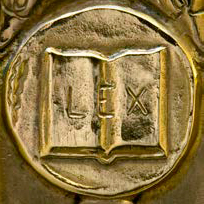Law, College of

Nebraska Law Bulletin (Selected Issues)
Date of this Version
8-19-2013
Document Type
Article
Citation
Nebraska Law Bulletin (August 19, 2013)
Abstract
Since I began circulating drafts of an article arguing that certain law school officials have exposed themselves to professional discipline by engaging in dishonest marketing tactics, responses have varied considerably. Everyone seems to agree, however, that law school officials should not lie in their pursuit of students. There also appears to be broad consensus that misleading (albeit not intentionally false) marketing—such as systematically skewed salary statistics—is an unfortunate phenomenon, although disagreement remains on just how serious a problem it is and what level of corrective effort is appropriate. In their recently-published response pieces, Kyle McEntee of Law School Transparency (LST) and Professor Jeffrey Stake offer two new avenues for improving the accuracy of law school marketing. Stake explains a theory under which law schools could be held liable for publishing inaccurate information through lawsuits filed by students who—but for the inaccuracies—would have either spent less on their legal education or avoided law school entirely. If successful, such lawsuits would both provide justice to misled tuition payers and deter future misconduct by law schools. McEntee proposes a certification program under which LST would verify the accuracy of law school marketing materials, allowing schools to advertise that their numbers have been blessed by third-party auditors.


Comments
Copyright 2013, the author